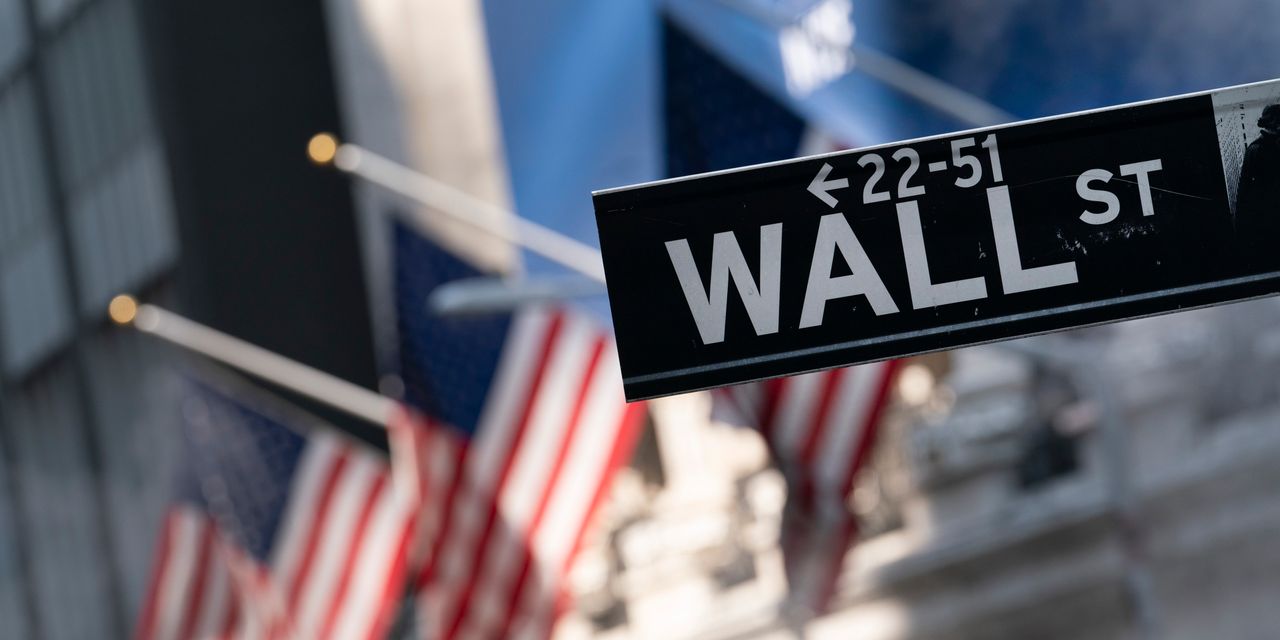
U.S. stocks ticked lower on the last trading day of 2021, wrapping up a year of repeated records on Wall Street on low interest rates and the rollout of Covid-19 vaccines.
The S&P 500 and the Dow Jones Industrial Average oscillated between small gains and losses as the New Year’s Eve trading session wore on before falling toward the end of the day. The S&P 500 fell 12.55 points, or 0.3%, to 4766.18, the Dow slid 59.78 points, or 0.2%, to 36338.30 and the Nasdaq Composite declined 96.59 points, or 0.6%, to 15644.97.
Money managers described Friday’s trading activity as light, and chalked up the marginal selling to last-minute tax moves and year-end portfolio positioning by fund managers. “Today is more about April than it is about Dec. 31,” said Jason Brady, chief executive of Thornburg Investment Management, which manages nearly $50 billion in assets.
The relatively calm trading Friday juxtaposed a busy year in markets in which individual investors piled into meme stocks and the rollout of Covid-19 vaccines and low interest rates motivated investments in equities.
These factors helped the S&P 500 to close at a record 70 times this year, more than one-quarter of all trading days, according to Dow Jones Market Data, and pushed the index up 27% in 2021. The Dow and Nasdaq did well over the past 12 months too, rising 19% and 21%, respectively, handing all three benchmarks their best three-year performance since 1999.
Much of the broader market rally was also driven by a small group of massive stocks, such as Apple, Tesla and Microsoft. Microsoft and Tesla shares have each risen around 50% this year, while Apple has gained more than 30%.
“This is really the year of the economic recovery,” said Sean Markowicz, an investment strategist at Schroders. “In 2022, I see growth cooling as the massive policy stimulus in response to the pandemic fades.”
Investors are watching a number of risks heading into 2022 that could derail the market’s rally. Cases of the Omicron variant of Covid-19 are surging, causing some businesses to curtail services and hours as workers call in sick. U.S. inflation reached a nearly four-decade high last month, raising questions about how many price increases Americans can absorb and if that will affect corporate earnings. The Federal Reserve has also set the stage for a series of interest-rate increases beginning next spring.
In response to some of those concerns, investors turned more defensive over December. They bought shares of utilities, consumer staples, and real-estate firms, pushing all three sectors up at least 9.4% over the month. Technology and communication stocks saw more muted gains, while shares of consumer discretionary firms were flat.
That continued to play out on Friday. Stocks across the communication services sector slipped 1.2%. Facebook parent company Meta Platforms fell $8.01, or 2.3%, to $336.35, while Alphabet lost $26.97, or 0.9%, to $2,897.04 and Netflix retreated $9.65, or 1.6%, to $602.44.
Some meme stocks were also in the red, suggesting some investors took profits there, too. Shares of AMC Entertainment Holdings fell $1.74, or 6%, to $27.20 Friday after rising more than tenfold this year. GameStop, up nearly 700% for the year, declined $6.94 on Friday, or 4.5%, to $148.39.
Meanwhile, shares of vaccine makers climbed. Pfizer added 65 cents, or 1.1%, to $59.05 in the wake of the the U.K.’s drug regulator authorizing its Covid-19 oral antiviral pill, as well as signs that public health officials in the U.S. may approve booster shots against the virus for 12- to 15-year olds as early as next week. Moderna climbed $2.38, or 0.9%, to $253.98.
Shares of Ford Motor also topped the S&P 500, adding 30 cents, or 1.5%, to $20.77. The car maker’s stock, which has been a favorite among retail investors all year, more than doubled this year, its biggest annual gain since 2009.
Consumer staples added 0.7%, while utilities and real-estate firms rose 0.3% and 0.2%, respectively.
In bond markets, the yield on the benchmark 10-year Treasury note ended at 1.496%, rising 0.583 percentage point this year, the largest one-year yield gain since 2013. Investors have sold out of government bonds, pushing up yields, because holding bonds that yield less than inflation means locking in a loss. Yields and prices move inversely.
Overseas, the pan-continental Stoxx Europe 600 edged almost 0.2% lower, with markets closed in Germany, Spain and Italy. The broad-market index has risen more than 20% this year.
The rapidly spreading Omicron variant is clouding the outlook for oil markets after a rapid recovery in demand pushed prices to their highest levels in years. Brent crude futures, the benchmark in global oil markets, declined 2.2% Friday to $77.78. For the year, it is up 50%.
Shares of Chinese internet and technology companies jumped in Hong Kong on the last day of the year, following a surge in their corresponding American depositary receipts overnight. The Hang Seng Tech Index, which tracks the 30 largest technology companies listed in the city, rose 3.6% on Friday in a holiday-shortened trading session. The broader Hang Seng Index gained 1.2%.
China’s Shanghai Composite added 0.6% Friday. Markets in South Korea and Japan were closed for a holiday.
Corrections & Amplifications
The chief executive of Thornburg Asset Management is Jason Brady. An earlier version of this article incorrectly gave his surname as Thornburg. (Corrected on Dec. 31)
Write to Caitlin Ostroff at [email protected] and Michael Wursthorn at [email protected]
Copyright ©2021 Dow Jones & Company, Inc. All Rights Reserved. 87990cbe856818d5eddac44c7b1cdeb8








